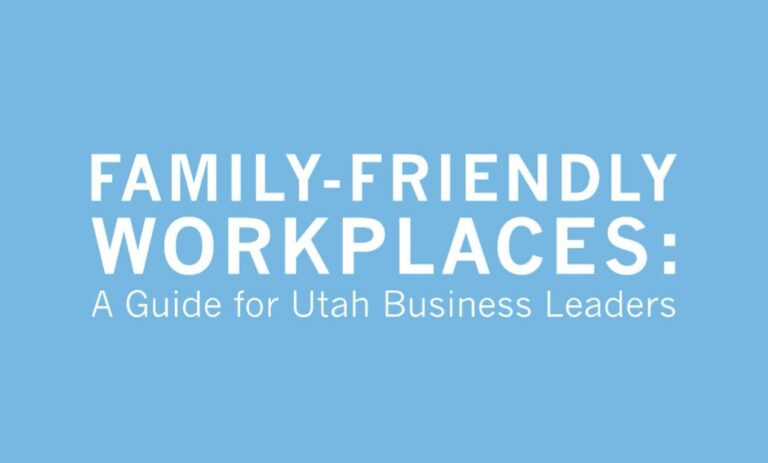In an effort to help the private sector adapt their workplaces to be more family-friendly, the Salt Lake Chamber’s nonprofit foundation, Utah Community Builders, has partnered with Voices for Utah Children and United Way of Salt Lake to create a guide entitled “Family-Friendly Workplaces: A Guide for Utah Business Leaders.” This guide answers many pressing questions the business community may have, including: How does child care affect businesses?
Although some believe child care is a personal family issue, it is also a business issue, because it affects how we work, when we work, and for many, why we work. Working parents are a large portion of Utah’s labor force, and that means the private sector can positively impact Utah’s workforce by addressing the intersectionality of child care, employee wellness, employee retention and upward mobility.
Child care issues result in an estimated $1.36 billion loss annually for Utah’s economy. That’s because working parents must balance the availability, affordability and quality of child care options when making employment decisions. For example, if the cost of child care is more than a parent could make by working, they will often choose to opt out of employment, making it harder for employers to recruit quality talent. For parents that prefer to work, flexibility in their employment is a key component of whether they will be able to participate in the labor force.
This issue, although serious and pressing, is also an excellent opportunity for businesses to think creatively about ways to build the child care infrastructure we need to help working parents keep working — for their families, and for the economy as a whole. Organizations can learn from this issue and act now, implementing strategies that can not only reduce employee turnover, but also increase employee satisfaction.
Employers that provide high-quality child care will not only differentiate themselves from the competition, but will also create a “sticky” benefit that fosters employee retention. Employees are less likely to move to a new job if it also means moving their child care from an environment they love and trust.
Though the task may seem daunting, there are resources to help your organization start making changes. To start, try to understand the needs of your working parents. Conduct surveys, host focus groups, and open lines of communication between frontline staff and senior leadership. As you begin to learn the landscape, existing resources and community partners can provide expertise and information to guide you. You will soon learn that supporting child care resources helps create a culture where employees feel supported and cared for.
Utah’s working parents need and deserve business leaders who are willing to elevate corporate culture by taking a comprehensive approach to the child care challenge. To get started, read more from the free Family Friendly Workplaces guide. With the private sector’s help, we can invest in Utah parents, children and families, making our state an even better place for business.


